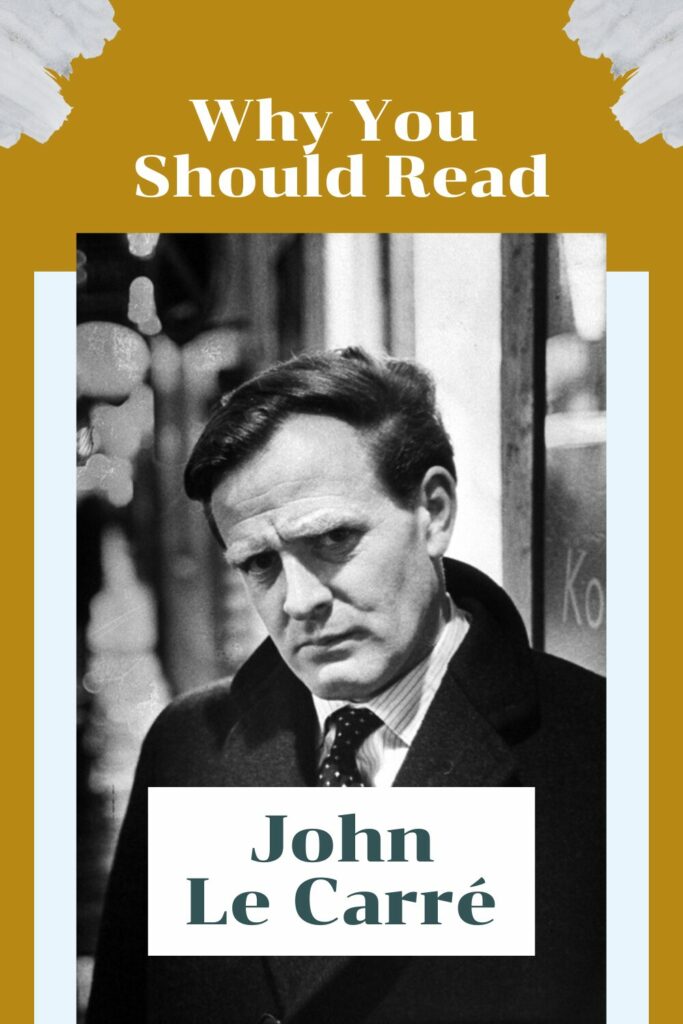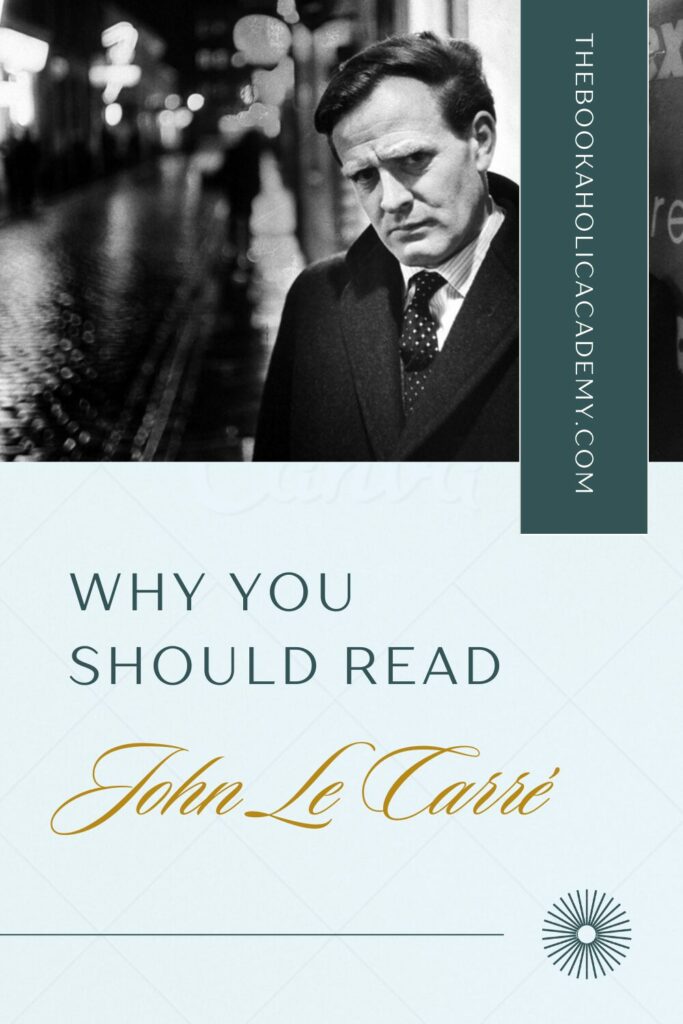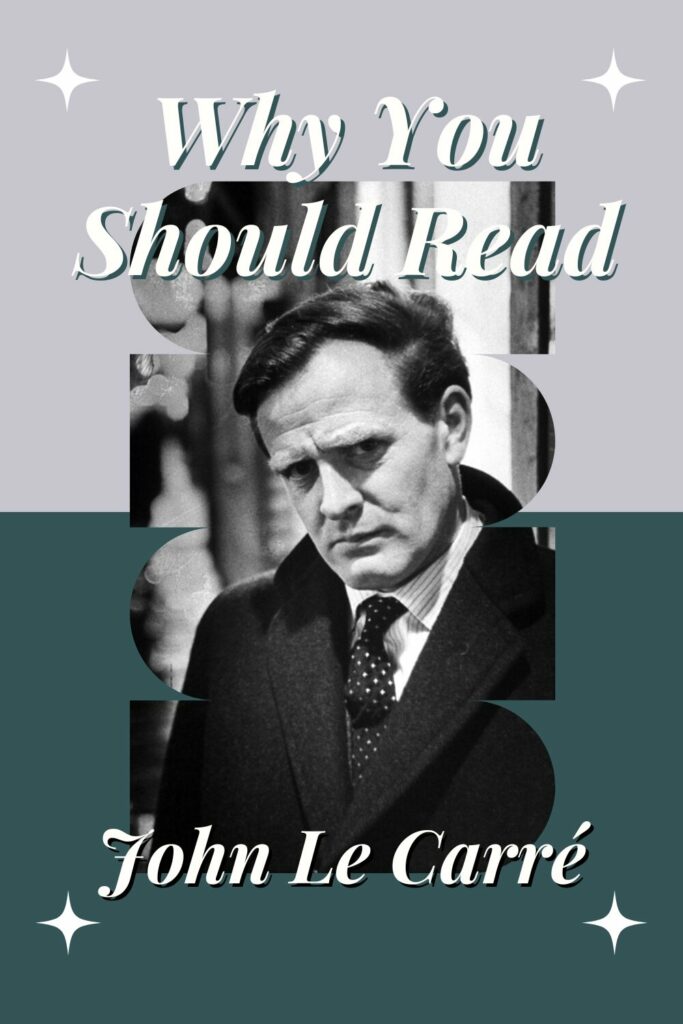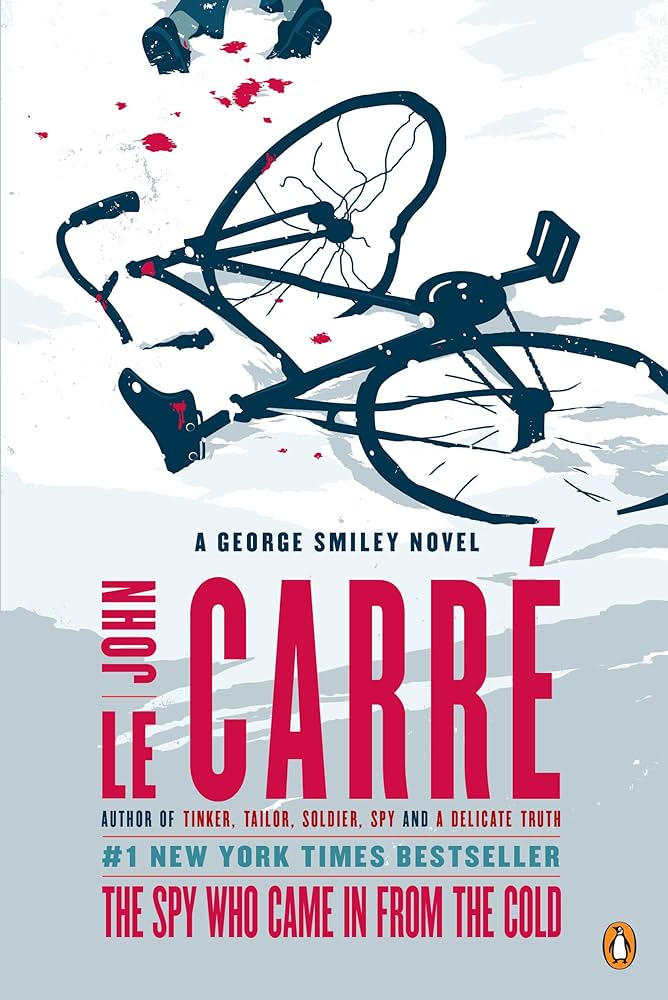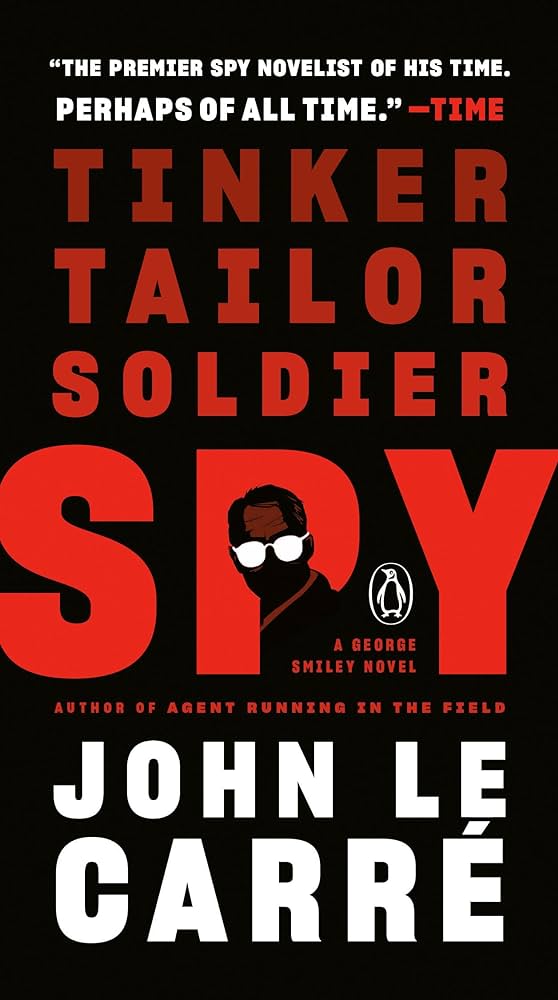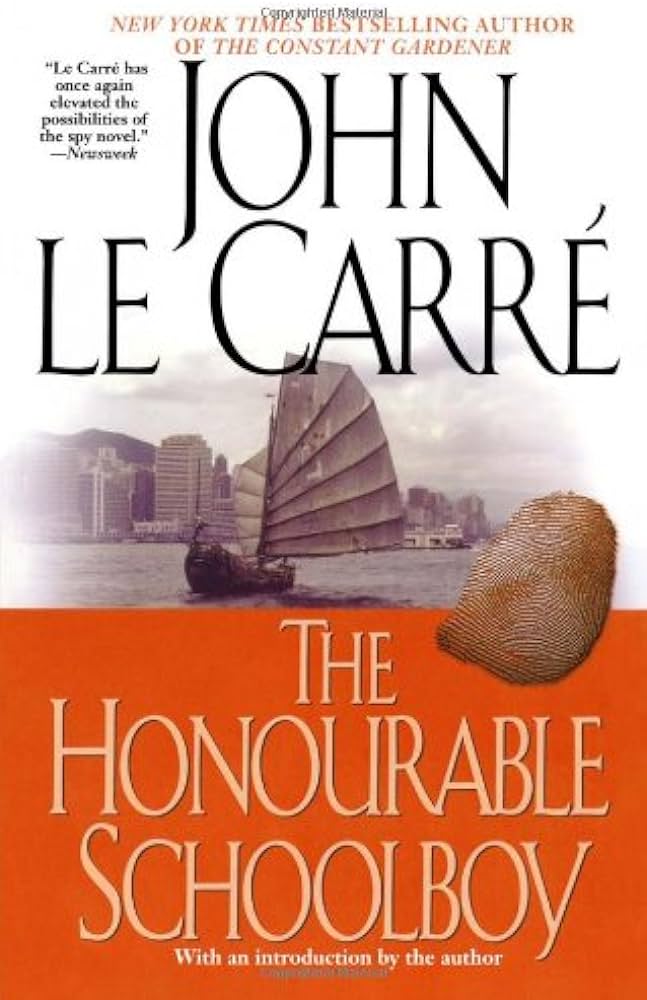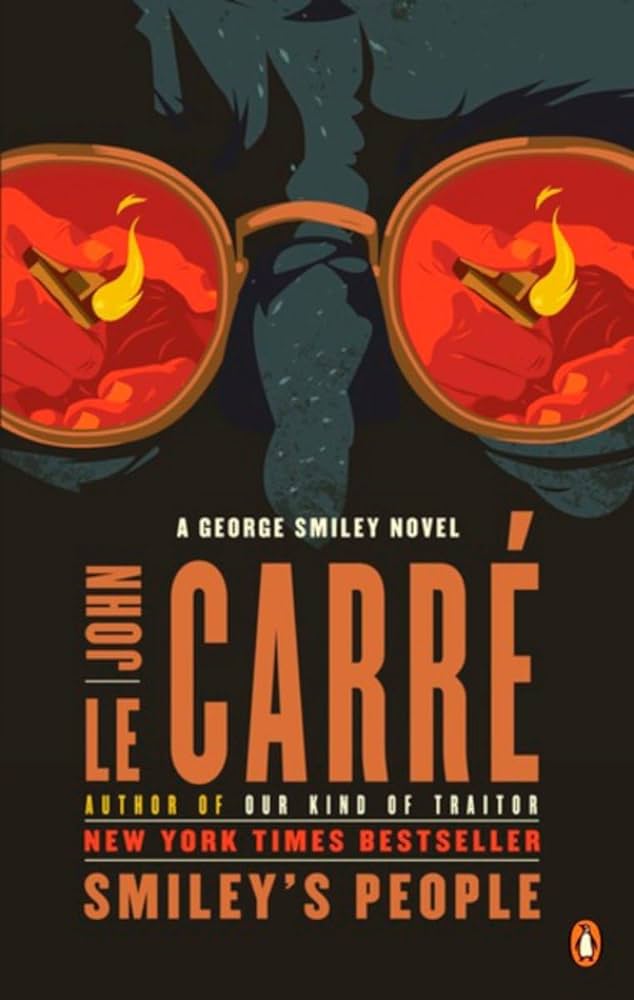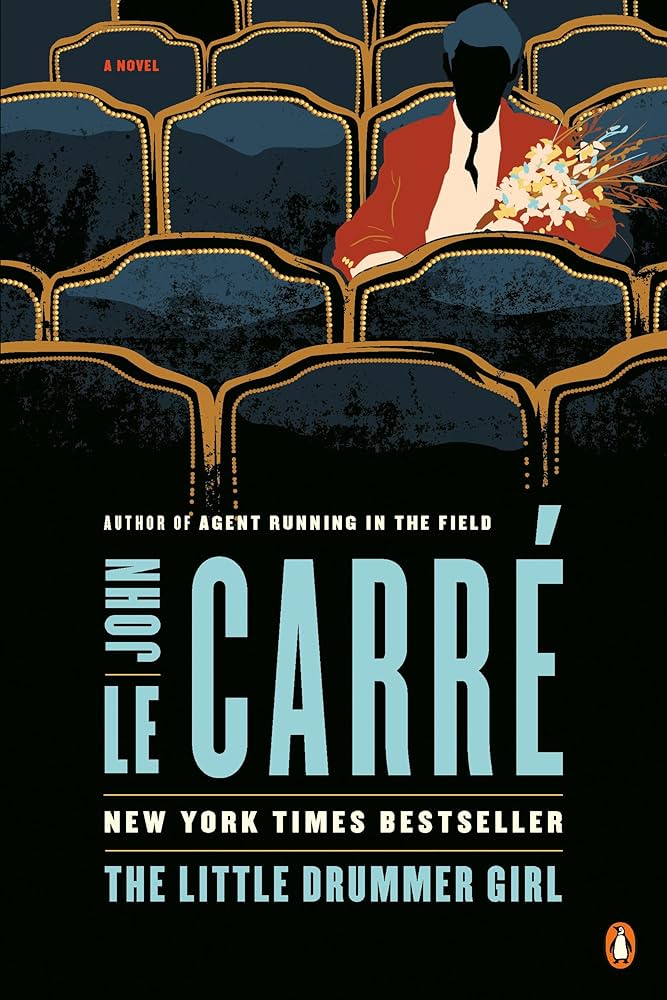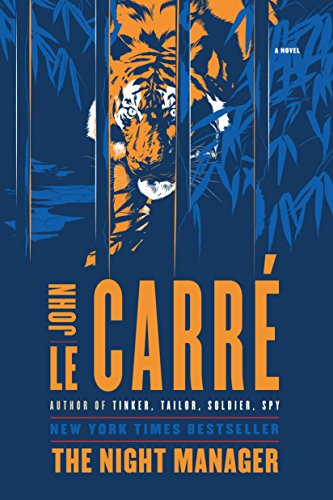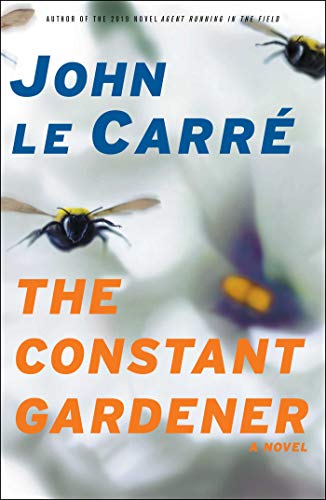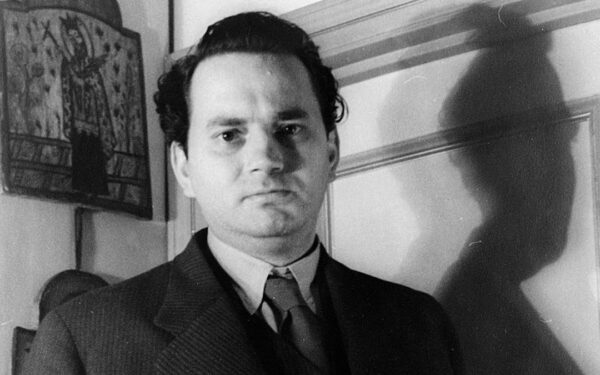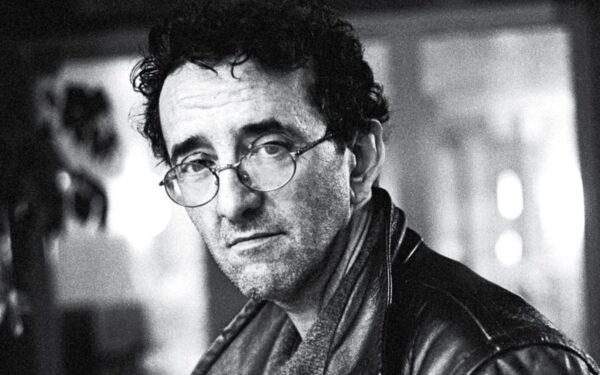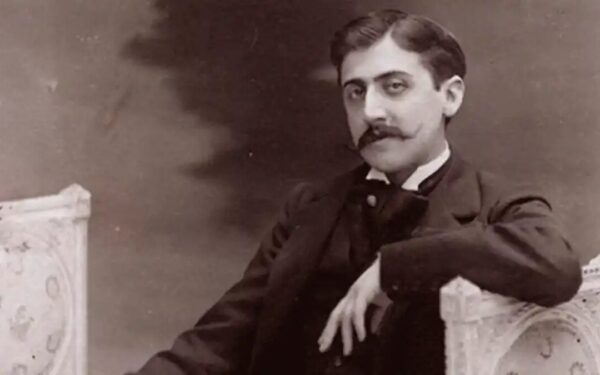Why You Should Read John Le Carré: His Best Novels

Disclaimer
This post may contain affiliate links. I will make a small commission if you make a purchase through one of these links, at no extra cost to you. See full disclosure and disclaimer policy HERE.
When it comes to the world of espionage and intrigue, few authors have captured the essence of the spy game quite like John le Carré. If you’ve ever found yourself fascinated by the shadowy world of intelligence agencies, covert operations, and double agents, then le Carré’s books are an absolute must-read. Let’s dive into what makes John le Carré’s work so captivating and why you should definitely add his novels to your reading list.
Table of Contents
Who Was John le Carré?
John le Carré born David John Moore Cornwell on October 19, 1931, in Poole, Dorset, England. His early life was marked by instability, largely due to his father’s frequent legal troubles and financial inconsistencies.
Despite these challenges, Cornwell excelled academically, attending Sherborne School and later, the University of Bern in Switzerland, where he studied German literature. He continued his education at Lincoln College, Oxford, where he earned a degree in modern languages.
Before becoming a full-time writer, Cornwell had a notable career in British intelligence. He first joined MI5, the United Kingdom’s domestic counter-intelligence and security agency, in 1958. Later, he was recruited by MI6, the Secret Intelligence Service responsible for foreign intelligence.
His experience in these agencies provided a wealth of knowledge and insights into the world of espionage, which he would later channel into his writing.
John le Carré passed away on December 12, 2020, but his legacy endures. His novels have been translated into numerous languages and adapted into acclaimed films and television series. Beyond the entertainment value, his work has influenced public perceptions of espionage and provided critical commentary on political and ethical issues.
Le Carré’s influence extends far beyond the literary world; his insights into the complexities of human nature and international relations continue to resonate with readers and audiences around the globe.
Complex Characters
Unlike the one-dimensional heroes and villains that populate many spy thrillers, le Carré’s characters are deeply human and multifaceted. Take George Smiley, one of his most famous protagonists. Smiley isn’t your typical suave, martini-sipping spy.
He’s a pudgy, middle-aged man with a troubled marriage and a penchant for quiet contemplation. Yet, it’s this very ordinariness that makes him so compelling. Smiley’s battles are often as much with his own conscience as they are with his enemies, reflecting the moral ambiguities and personal costs of espionage.
RELATED:
The World’s Best Mystery And Crime Fiction Book Series
Rich, Layered Plots
Le Carré’s novels are renowned for their intricate, multi-layered plots that keep you guessing until the very end. They’re not just about action and adventure; they’re cerebral puzzles that challenge you to think critically and pay attention to the smallest details.
His novels often explore the tensions of the Cold War, the shifting alliances in the Middle East, and the ethical complexities of modern intelligence work. They offer a nuanced perspective on international relations, far removed from the black-and-white morality of many spy thrillers.
Through his stories, you gain a deeper understanding of the historical and political contexts that shape the world we live in today.
Most Notable Novels
John le Carré’s literary career spans over five decades and includes numerous critically acclaimed works. His novels are celebrated for their intricate plots, complex characters, and realistic portrayals of espionage and international intrigue.
Here are some of his most notable novels that have left an indelible mark on the genre and continue to be widely read and admired.
The Spy Who Came in from the Cold (1963)
This novel is arguably le Carré’s most famous work and the one that solidified his reputation as a master of the spy genre. The story follows Alec Leamas, a British agent who is seemingly on the verge of defection to East Germany.
What appears to be a straightforward defection turns out to be a complex plot involving deception and betrayal. The novel’s gritty realism and moral ambiguity set it apart from other spy thrillers of the time.
Tinker, Tailor, Soldier, Spy (1974)
Part of the “Karla Trilogy,” this novel introduces readers to the intricate world of British intelligence during the Cold War. The protagonist, George Smiley, is called out of retirement to uncover a Soviet mole within the Circus, the British intelligence agency.
The novel is renowned for its detailed portrayal of espionage tradecraft and its complex, multi-layered plot. It has been adapted into both a successful television series and a critically acclaimed film.
The Honourable Schoolboy (1977)
The second book in the “Karla Trilogy,” this novel follows George Smiley as he rebuilds the Circus and attempts to unravel a complex web of Soviet espionage activities in Southeast Asia. The story focuses on Jerry Westerby, a journalist and occasional spy, whose assignment in Hong Kong leads to a thrilling and dangerous investigation. The novel is noted for its rich descriptions and intricate plotting.
Smiley’s People (1979)
The final instalment in the “Karla Trilogy,” this novel brings George Smiley’s long-running battle with his Soviet counterpart, Karla, to a gripping conclusion. Smiley is once again drawn out of retirement to investigate the murder of a former agent, leading to a high-stakes confrontation with Karla. The novel is celebrated for its suspenseful narrative and its exploration of the personal and moral costs of espionage.
The Little Drummer Girl (1983)
This standalone novel departs from the Cold War setting to focus on the Israeli-Palestinian conflict. The story follows Charlie, a young English actress who is recruited by Israeli intelligence to infiltrate a Palestinian terrorist cell.
The novel explores themes of identity, loyalty, and the blurred lines between good and evil. It has been adapted into a film and a television series.
The Night Manager (1993)
In this novel, Jonathan Pine, a former British soldier turned hotel manager, is recruited by intelligence operatives to infiltrate the inner circle of a dangerous arms dealer. The story combines elements of traditional espionage with high-stakes action and romance. It was adapted into a highly successful television miniseries starring Tom Hiddleston and Hugh Laurie.
The Constant Gardener (2001)
This novel shifts focus to corporate corruption and pharmaceutical ethics. It follows Justin Quayle, a British diplomat in Kenya, who investigates the murder of his wife and uncovers a conspiracy involving a major pharmaceutical company.
The novel is both a gripping thriller and a powerful commentary on global injustices. It was adapted into an Academy Award-winning film starring Ralph Fiennes and Rachel Weisz.
Themes and Style
Le Carré’s writing is distinguished by its sophisticated prose, intricate plots, and deeply human characters. His novels often explore themes of betrayal, moral compromise, and the human cost of political conflict.
Unlike many spy thrillers that focus on action and adventure, le Carré’s work delves into the psychological and emotional toll of espionage, providing a more nuanced and realistic portrayal of the spy game.
Conclusion
In the realm of spy fiction, John le Carré stands head and shoulders above the rest. His deep understanding of espionage, complex characters, intricate plots, geopolitical insights, timeless themes, and beautiful prose make his novels a treasure trove for any reader.
So, if you’re looking for books that are not just thrilling but also intellectually and emotionally enriching, do yourself a favour and start reading John le Carré. You won’t regret it.
FAQs
Did you like it? Pin this post for later!
